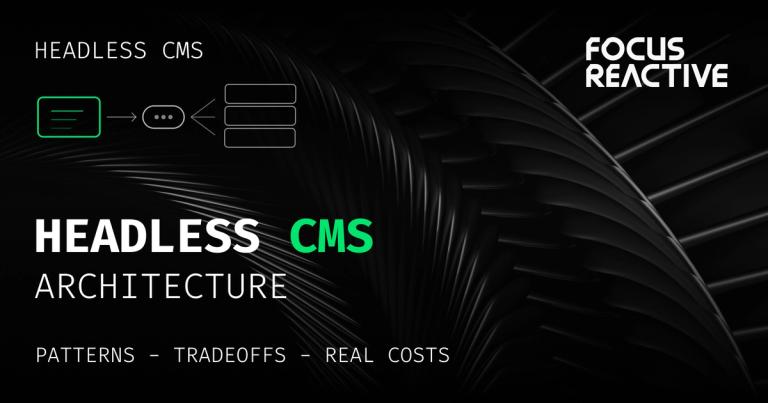Vercel as a hosting platform: When It's the best choice and when to look elsewhere
In this article, we explore the strengths and weaknesses of Vercel as a hosting platform. The goal is to help you decide when Vercel is the right solution for your project and when you might need an alternative.

TL;DR Vercel has transitioned from frontend hosting to a comprehensive AI cloud service. It remains the gold standard for Next.js 16 and modern frameworks, now offering Fluid Compute for resource-intensive workloads and AI Gateway for global model orchestration.
While Vercel is ideal for rapid frontend deployment and AI orchestration, AWS for instance remains the best choice for organizations seeking maximum infrastructure flexibility, dedicated backend clusters, and highly scalable persistent databases. Whether new development or complex migrations, AWS provides the low-level control and scalability that serverless platforms often abstract away.
Introduction
Vercel has rapidly grown in popularity among developers, becoming one of the leading platforms for modern web hosting. While originally associated with Next.js, Vercel is now a full-featured hosting solution that supports a wide range of frameworks and use cases. Its mission is simple: to make deploying, scaling, and collaborating on web applications effortless. In this article, we explore the latest features, benefits, and limitations of Vercel to help you decide if it's the best solution for your next project.
Pros of Vercel Hosting
- Although Vercel was created for Next.js applications, it now supports Nuxt, SvelteKit, Astro, Remix, Vue, Vite, and more. This makes it a versatile platform for static sites, SPAs, and modern web frameworks beyond its original ecosystem. Whether you're building a dynamic single-page application or a static site, Vercel offers an adaptive environment to suit your needs.
![]() The native Next.js platform
The native Next.js platform
- Rapid Deployment & Git Integration. Deployments are tightly integrated with GitHub, GitLab, and Bitbucket, allowing every branch to spin up a live preview automatically. This "preview deployment" workflow is one of Vercel's most developer-friendly features, giving teams instant feedback before merging code.
![]() Rapid Deployment
Rapid Deployment
- Collaboration & Integrations. Vercel integrates with popular tools like databases, CMS platforms, and communication apps such as Slack. Its combination of a user-friendly dashboard and a powerful API makes it easy to manage projects at scale, whether for individuals or teams.
 Integration and Collaboration
Integration and Collaboration
![]() Version control systems
Version control systems
Global CDN, Automatic HTTPS & Advanced Edge Network. Vercel's global content delivery network (CDN) and automatic HTTPS configuration ensure that your content is delivered quickly and securely, no matter where your users are located. Recent updates have also improved the platform's edge network capabilities, reducing latency and improving overall performance.
Free Tier & Flexible Pricing. The free tier is generous enough for personal projects and small applications. Paid tiers scale with usage, offering enterprise-ready features such as SSO, advanced observability, and SLAs. Pricing is flexible, but costs can rise with heavy usage of serverless functions or build minutes.
 Vercel pricing
Vercel pricingDeveloper-Friendly Experience. It emphasizes simplicity: instant live previews and rollbacks, streamlined build processes, built-in CI/CD pipelines, environment variable management, support for cron jobs and serverless functions and automated scaling. All of this enables developers to focus on writing code rather than maintaining infrastructure.
User-friendly interface and robust API The platform's interface is intuitive, making it easy to manage multiple projects at once. And if you like automation, a powerful API lets you handle almost everything programmatically - mirroring what you can do in the UI, but with added flexibility to customize your workflow. Latest features of Next.js
Performance & Scalability. High-speed server responses, efficient resource usage, and advanced caching techniques mean Vercel can handle traffic spikes with ease. Its evolving edge network and performance optimizations ensure your applications stay responsive as they grow.
Monitoring & Observability. Vercel provides several built-in tools to monitor performance, track errors, and analyze builds:
- Real-time logs and metrics: View serverless function executions, error rates, and latency.
- Build analytics: Track build times, deployment frequency, and preview environments.
- Integrations: Connect with third-party tools like Sentry, Datadog, or Logflare for advanced monitoring.
These capabilities help teams quickly identify and resolve issues, ensuring high reliability for production applications.
- Security Features. Vercel includes multiple layers of security by default, reducing operational burden:
- Automatic HTTPS with free SSL certificates.
- Edge-level security to protect against DDoS attacks and malicious traffic.
- Environment secrets: Safely store API keys, tokens, and credentials for serverless functions.
- Role-based access control (RBAC) for team collaboration and enterprise plans.
These features allow developers to deploy quickly without sacrificing security.
- Infrastructure Built for AI. Vercel has evolved into a comprehensive AI cloud. With the Vercel AI SDK and AI Gateway, it has become the industry standard for building and scaling generative AI applications and agent-based workflows.
It provides built-in support for response streaming, prompt management, and global model orchestration, making it easy to integrate LLM into your web applications.
Cons and Limitations of Vercel Hosting
- Limited Backend Support. While Vercel is great for front-end and serverless functions, it may not be the best choice if your project requires heavy backend processing or support for specific server-side languages. For complex server-side logic, you may need to supplement Vercel with additional backend services.
- Cost at Scale. The free plan is great for small projects, but costs can quickly add up as you scale. If your app requires advanced features or heavy usage, be prepared to invest — enterprise plans can be especially relevant. It's important to weigh these costs against your project's requirements.
- Lack of Low-Level Control. Vercel abstracts away the server, which means you cannot customize network configurations, install system libraries, or run unconventional tech stacks. For some teams, this abstraction is a limitation rather than an advantage.
What to choose?
Vercel is ideal for:
- Next.js applications and other modern front-end frameworks like Nuxt, SvelteKit, and Astro.
- Projects where you prefer to avoid managing server infrastructure.
- Static sites, single-page applications (SPAs), fullstack projects with serverless functions, and JAMstack architectures.
- Teams who value rapid deployment and seamless tool integration.
- Frontend applications where backend needs are minimal or can be met with simple serverless functions.
When to Consider Alternatives
- Projects with high or complex backend requirements that require dedicated server environments.
- Scenarios where you need detailed control over server configurations.
- Budget-sensitive projects where scaling costs may become prohibitive.
Quick Decision Guide
Choose Vercel if…
- You're building with a modern front-end framework (Next.js, Nuxt, SvelteKit, Astro, Remix, Vue, Vite).
- You value speed of deployment and preview environments for every branch.
- Your backend needs are lightweight and can be handled by serverless functions or third-party APIs.
- You want global performance out of the box without managing infrastructure.
Look elsewhere if…
You require advanced DevOps customization, complex networking, or are planning a strategic migration to a more robust, independent cloud infrastructure like AWS to avoid vendor lock-in and optimize long-term costs.
Your application requires complex backend processing, persistent WebSocket connections, or long-lived tasks.
You need detailed server customization or low-level network control.
You're operating at very large scale with strict budget constraints.
Vercel pricing
Alternative Platforms Worth Considering
If Vercel doesn't fully fit your needs, here are some notable alternatives:
AWS (Amazon Web Services) - The ultimate platform for infrastructure flexibility. It is the preferred choice for scaling complex backends, managing dedicated database clusters, and maintaining full control over security and compliance.
Cloudflare Pages & Workers – The strongest competitor in the edge-computing space. With built-in AI model execution and globally distributed SQL databases (D1), it is ideal for low-latency applications that need to process data as close to the user as possible.
Netlify – A robust enterprise-grade platform that has evolved beyond JAMstack. It now offers advanced "Compose" features for complex orchestrations and is a solid alternative for teams seeking a managed, frontend-centric workflow with integrated security.
Fly.io/Render – These platforms bridge the gap between simple hosting and complex cloud setups. They are perfect for running full-stack Dockerized applications, persistent WebSockets, and long-running background processes that Vercel's serverless model doesn't support.
AWS Amplify – For those already in the Amazon ecosystem, these services offer a more "Vercel-like" experience for frontend hosting while providing a clear path to deeper AWS integration as the project scales.
Conclusion
Vercel has evolved into a full-featured platform that meets the demands of modern web development. If you're running a personal blog or a complex enterprise application, its speed, ease of use, and developer-focused tools make it an attractive option, especially if you're focused on front-end performance.
However, if your project relies on intensive back-end processing, you may want to explore additional hosting solutions. A full understanding of your project's unique needs will help you make the best choice. For a personalized consultation, consider contacting official Vercel integration partners or contacting us directly - Vercel's Official Integration Partners for tailored advice and solutions that maximize your project's potential.
FAQ
Explore frequently asked questions about Vercel






